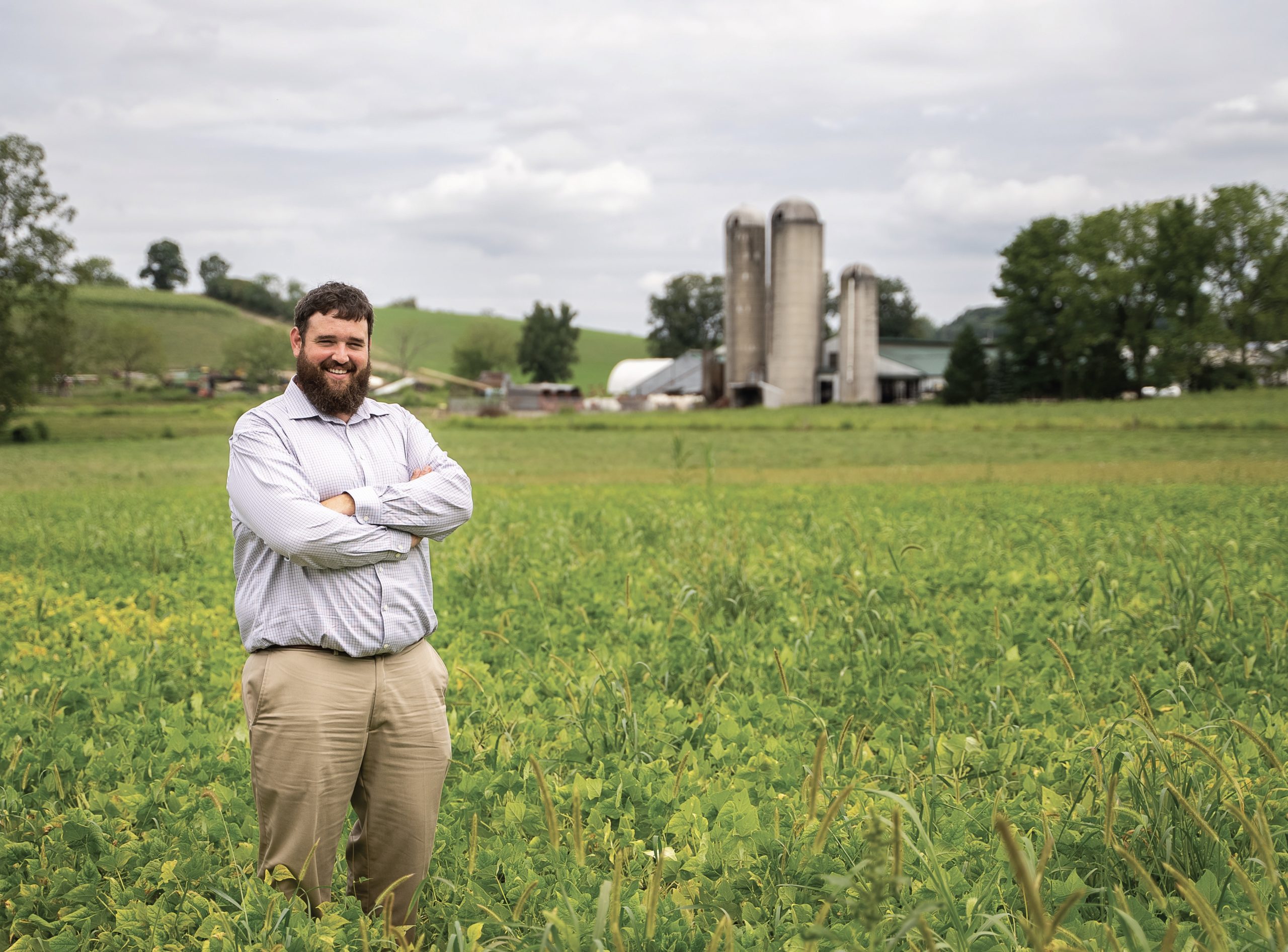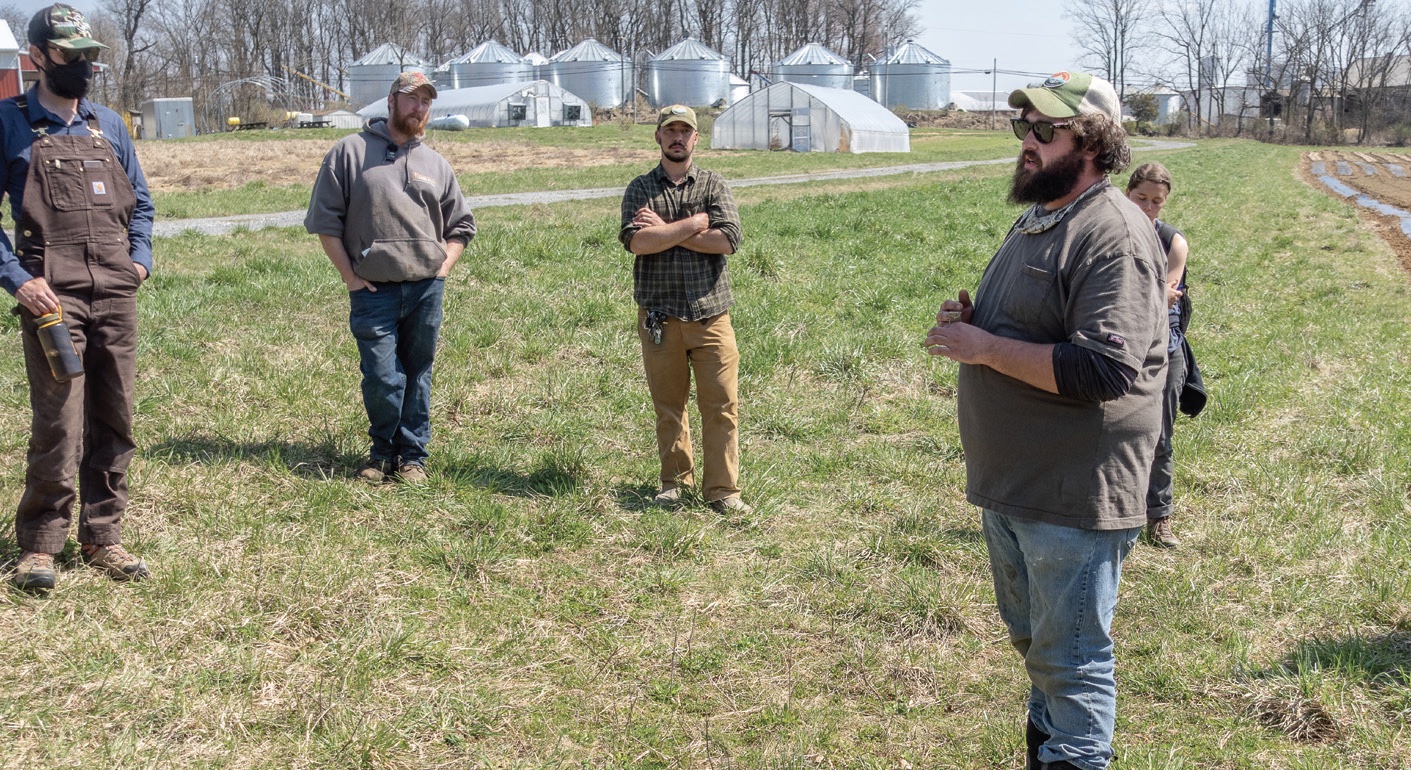
Dec 16, 2021
How a career in organic agriculture started with a single egg
It all started with an egg. Or, more specifically, pasture-raised eggs. The first time I cracked one, there was no way of knowing how deep of a rabbit hole that egg would lead me. In 2013, I was months away graduating from Temple University in Philadelphia, Pennsylvania, with a degree in economics. With my future partner in grad school, I had assumed most of the at-home cooking responsibilities.
My college repertoire of 4-5 “tried and true” recipes was no longer cutting it. As embarrassing as it is, my search for high-quality ingredients began as a lazy attempt for better food. If you want high-quality dishes, there are two options: improve your basic cooking skills or improve the ingredients you use. I opted for the latter. I began sourcing ingredients from the farmers’ market, a specialty grocer who purchased from local farms, and we joined a community-supported agriculture program.
At first, the dishes were basic: swapping out canned and processed ingredients for their locally-sourced counterparts. For a few months, this style was adequate. The flavors improved, nutritional value increased and the feeling of being part of a larger local food community was just coming into existence in my mind. Eventually, I began to branch out into more exciting recipes using ingredients I had never pronounced, let alone used. I learned what kohlrabi was, I noticed the seasonal flavor changes of carrots, and (always) came back for pastured eggs.
Eventually, I began to research what made them so different. I learned all about omega-3s and 6s, beta carotene and protein content. I realized that the same principles that applied to the eggs also applied to the rest of our food – mainly that improved management equals improved quality. If this principle held true for eggs, it meant it was also true for other poultry, large and small ruminants and, finally, vegetables.
Needing a change

Late in the year of 2016, after bouncing around from corporate sales job to corporate sales job, I felt like I needed a change. I came upon a job listing for farmers’ market help for a local dairy farm making and selling cheeses and yogurts. The next week I began selling at markets, doing in-store demos and working with chefs. But still, that feeling of being incomplete nagged at me.
Next, I came upon a local farm raising grass-fed lamb, pastured pork and organically managed vegetables for sale in Philadelphia. I quickly met with the farmer and made the switch. I had just read “The Market Gardener” and, being surrounded by diversified vegetables, it hit me like a bolt of lightning. I spent a season learning the ins and outs of loading pigs for slaughter, trimming hooves, managing on-farm dinners with guest chefs and the basic operation of a diversified vegetable farm. Alas, the season ended, and it was time to move on.
I knew I wanted to stick with small-scale growing and was looking for a way to begin to become more independent in my growing. That was when I found the internship application for the Rodale Institute’s Farm Training program. The internship allowed me to quickly expand my knowledge – knowledge that up to this point was purely hands-in-soil and practical. I began to understand not only how crops fit into a farm plan, but how that farm plan fit into a business plan. Falling on my business background, I began to apply these concepts to the larger picture of a farm. How do you market your produce? How do I manage the cash flow? These theoretical questions became more and more concrete throughout the season. Finally, at the end of the year, I felt there was enough momentum building that I could start my own farm.
Helping others
 Starting any small farm will have its difficulties. On paper, everything seems so neat and tidy. Money ebbs and flows as planned, supply shortages don’t exist, and all resources are allocated exactly as they should be. Of course, this never happens in real life, so adapting, reallocating, reorganizing and readjusting all had to happen in real time. Starting a small farm while also working full time on a farm presented its own set of challenges. There are no long, lazy afternoons playing in the fields or experimenting with growing styles and vegetable varieties. Everything needed to work and work on time. I would come to the farm after work to harvest, weed, plant and seed. I was working until sunset (and sometimes after) every night.
Starting any small farm will have its difficulties. On paper, everything seems so neat and tidy. Money ebbs and flows as planned, supply shortages don’t exist, and all resources are allocated exactly as they should be. Of course, this never happens in real life, so adapting, reallocating, reorganizing and readjusting all had to happen in real time. Starting a small farm while also working full time on a farm presented its own set of challenges. There are no long, lazy afternoons playing in the fields or experimenting with growing styles and vegetable varieties. Everything needed to work and work on time. I would come to the farm after work to harvest, weed, plant and seed. I was working until sunset (and sometimes after) every night.
It was around this time that a position with the Rodale Institute’s consulting team had a position open for a Small Farms and Diversified Vegetable consultant. After being hired and multiple training sessions, I was finally working with my own clients. I finally had a position where my passion for working with and around people met my relatively newfound love of organic agriculture.
I am lucky enough to spend most of my days working with small, diversified organic farmers in various stages of their farming journeys. I am also lucky to spend most of my nights working at my own small, diversified, certified organic farm. I must admit that a large chunk of my time is spent learning from my clients.
In organic agriculture, everything is everything. You can’t change one aspect of a system without, in some way, affecting the entire system. This feedback loop continues in my work as well. My passion for my work comes from knowing that my success can be shared with everyone I work with, and in turn, their success is somehow shared with me. I am grateful for the opportunity I have to improve my farm and myself, but also improve our local communities and our shared food system..






